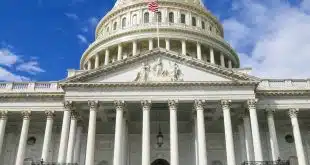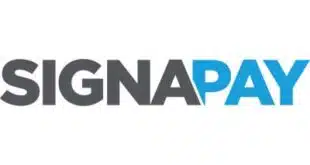Plaintiffs in a lawsuit seeking to overturn the Illinois Interchange Fee Prohibition Act filed motions last month requesting the court deny a request from several merchant organizations to join the Illinois Attorney General as defendants in the suit.
The case, which involves a recent Illinois law that prohibits interchange on the tax and tip portion of card transactions, has roiled the payments industry nationwide for months (“The Prairie State’s National Challenge,” September). At the heart of the plaintiffs’ argument is that the Illinois Attorney General is not only “actively defending” the Illinois Interchange Fee Prohibition Act (IIFPA), but also that retail associations “do not propose to add anything to the merits of the case because their legal arguments mirror those of the Attorney General.”
Plaintiffs in the case—generally, those who oppose the law’s interchange exemption for tips and tax—are working to prevent it from taking effect July 1, 2025, as scheduled by the legislation. Meanwhile, the case has inspired a whirlwind of motions from both proponents and opponents. A ruling from the court was expected Oct. 30, after this issue of Digital Transactions went to press.
The Illinois Retail Merchants Association, the Illinois Fuel and Retail Association, the National Association of Convenience Stores, the National Retail Federation, and FMI, the food-industry association, are the merchant groups that this fall filed a request to intervene in the case as defendants.
The groups requested to join the suit because they feel they could provide the court with more facts and insights about how the payments system works. The move is part of an effort to refute plaintiffs’ claims that the law will negatively disrupt the payments system, according to Doug Kantor, general counsel for the National Association of Convenience Stores.
To further their argument against the intervention, the plaintiffs contend their challenge to the legality of the IIFPA is a question the Illinois “Attorney General is fully competent to litigate.”
In contrast, they add that the retail associations’ intervention in the case “would only add distraction and complexity by using party status as a staging ground for their policy interests.”
The Illinois Bankers Association, The American Bankers Association, the Illinois Credit Union League, and America’s Credit Unions, formerly the National Association of Federally-Insured Credit Unions in August filed the lawsuit challenging the IIFPA.
While the IIFPA exempts Illinois merchants from paying interchange on sales tax and gratuities linked to credit and debit card transactions, the state will cap what merchants earn for collecting sales tax at $1,000 per month.
The plaintiff’s motion also argues that as a “governmental body charged by law with protecting the interests of the proposed intervenors,” the Illinois Attorney General “is presumed to adequately represent” the merchant organizations’ interests “unless there is a showing of gross negligence or bad faith” on the part of that office.
Finally, the plaintiffs contend that any “perspective” from the retailer organizations could be shared in an amicus brief “without unduly burdening the court and prejudicing plaintiffs.”
The plaintiffs note that other parties, such as the Office of the Comptroller of the Currency, a federal agency “with relevant authority and expertise” in payment systems, have filed amicus briefs arguing against the legality of the IIFPA without requesting to intervene in the case. The OCC filed an amicus brief earlier this month opposing the law and supporting the plaintiff’s request for an injunction.
Plaintiffs add they have no objection to the merchant organizations filing an amicus brief to make their arguments for the IIFPA.
Merchant organizations viewed the latest motion filed by the plaintiffs as a sign the law’s opponents are concerned about the merits of their case. “It’s not surprising that [the plaintiffs] are concerned the court might learn the truth from the merchant organizations seeking to intervene in the case,” Kantor says.
In addition to filing a motion urging the court to deny the intervention request, the plaintiffs filed another motion last month arguing against the Illinois Attorney General’s request to deny a preliminary injunction against the IIFPA.
In that motion, the plaintiffs argue that, if allowed to take effect, IIFPA “would require banks, savings banks, credit unions, and networks worldwide to overhaul payments systems that allow consumers and merchants to instantly consummate millions of transactions every day.”
Plaintiffs also restated their argument that the IIFPA “is pre-empted under multiple sources of federal law and, in turn, invalid under state and federal law that guarantee state-chartered institutions competitive parity.”
Granting a preliminary injunction, plaintiffs argue, would cost “millions of dollars’ investment in new automated systems” and would involve “mindbogglingly burdensome manual processes” that will be wasted when the law “is eventually found invalid.”
The Illinois Attorney General’s Office says it does not comment on pending litigation.




